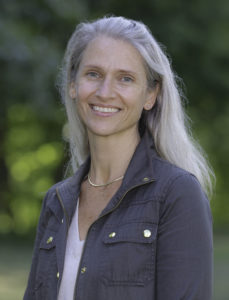As We Judge
Message from the headmaster
“The poet judges not as the judge judges, but as the sun falling around a helpless thing.”
—Walt Whitman, Preface to Leaves of Grass, 1855
As the country mourns the death last Friday of pioneering Supreme Court Justice Ruth Bader Ginsburg, I am thinking about judges — and about judgement. I think most educators would agree that good judgement is one of the things we try to teach students, because it determines so much about how our lives unfold, and also determines how effectively we can find truth in a confusing world. But we also might agree that judging others — particularly making snap judgements — is one of the traps we would like to help young people avoid.
But is it really possible to teach good judgement? What is at stake if we don’t teach young people how to be good judges of what they encounter in the world? How do we help them avoid being merely judgmental? There are countless ways we use our judgement every day, whether we are trying to understand a tricky situation, gauge the accuracy of a piece of news, choose how to respond to a provocation, or decide on a course of action. But regardless of the object, we can almost always make better use of our judgement if we suspend it for a moment — then deliberately shed light on that object.
Teaching good judgement, like teaching “character” more generally, is often a matter of pointing to examples of it and considering them together. When we see each other doing the right things, or the wrong things, it is worth pointing to them as illustrations to accompany whatever else we might say in the abstract about right and wrong. Sometimes teaching judgement also depends on how willing we are to abide with the messy results of allowing it to fail. Encouraging students to judge things for themselves, and to make their own choices, even when we are tempted to preempt the bad ones, is essential to their real understanding of consequences.
Because the judgement we hope to help young people develop is the kind that will lead to their making better decisions, and assessing more judiciously the situations in which they find themselves. Teenagers are unique among us in many delightful ways; even as they begin to show us signs of remarkable maturity, and astonish us with their intelligence and skill, we have to remember that they are literally still growing their brains. Recent research about brain development shows the decision-making sections of the brain are simply not complete — as infuriating as that is to suggest to an actual teenager — and won’t be until they are around twenty-two or twenty-three. Knowing this can provide a very helpful answer to the question, “what were you thinking?”
It’s important for all of us to pause in order to weigh our potential actions or decisions, but perhaps even more important for teenagers, whose first impulses might not always be programmed to consider the full range of possible results. We hope that they will deliberate, which has its root in the Latin “librare,” or “to weigh,” and includes the action of balancing — literally — on the one hand this, on the other hand that. Consider the depictions of the astrological sign “Libra,” represented by the balance or scales, and the images of “Lady Justice” holding those scales in one hand, and a sword in the other. Notice that Lady Justice is not moving very fast, and that sword is leaning, not raised. It’s hard to weigh something unless you stand still and wait for the gravity to set in — and while you do that, you have to let any action, any judgement, wait, too. Incidentally, it doesn’t escape me that St. Johnsbury is a town that grew up around the practice of weighing, and built the tool for everyone to do it — so we should be able to excel at it.
The question of judging others is different, and relevant right now, because so much of what we say, and what others say to us, in public spaces, and particularly in virtual spaces, is so judgmental. We are ready to praise, but sometimes even more ready to condemn or strike through what others say or express. And we judge under the cover of anonymity, or of faceless online presence, far too easily.
Again, being deliberate — taking the time to weigh our words and even the very urge to respond or contribute to a space that is not positive — helps us be better. If we take a moment to imagine the equal humanity of the person we’re speaking to — to hold them in balance with ourselves, and imagine that they have reasons for what they are doing and saying, we might develop healthy curiosity about those reasons. You might ask questions instead of judging. You might ask yourself: why are they angry or upset? Why do they feel so strongly? What are they really trying to say? Better yet, you might ask them: What matters to you? What do you care about? What story has led you here? Where do we agree? What happens if I decide not to judge you, but instead try to illuminate the world we have in common?
The poet of American equality and endless inclusion, Walt Whitman, maintained that the poet’s work was not to judge but to illuminate — that the poet’s judgement works “as the sun falling around a helpless thing.” The poet shows us the world, ready to be weighed and understood, but not yet judged.
Perhaps one way to teach good judgement is to suggest we all spend a little longer as the poet, and wait for more light to fall.

Dr. Sharon L. Howell
Headmaster

